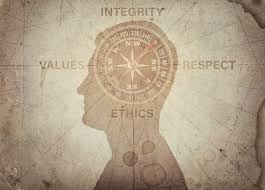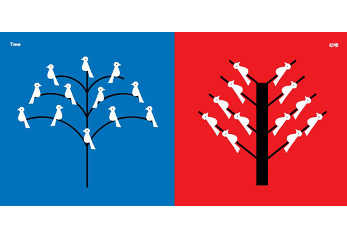
The conventional wisdom of our time, echoed in blog posts, training seminars, and panel discussions abound, is that authenticity is a vital component of effective thought leadership. Say what you mean and mean what you say if you want people to trust and respect you. If this sounds fairly straightforward, perhaps the two TV interviews that hit the headlines recently might give you pause for thought, both of which attracted so much attention not because of the stories they were covering, but because of the breakdown in communication between the people involved.
In the first one, Sky News host, Jayne Secker, came under fire for chastising a woman she was interviewing about the abolition of no-fault evictions for ‘not having the skills to rent’. She apologised the next day on Twitter for the tone and content of her interview. Two days later, also on Sky News, fellow anchor, Adam Boulton, lambasted his guest – a spokesperson for the protest group, Extinction Rebellion – for being ‘like the incompetent middle-class, self-indulgent people [who] want to tell us how to live our lives‘. The guest stormed out of the interview in response, which promptly became the story of the day.
What made these two interviews so remarkable wasn’t just the incendiary tone of the hosts, but that they were so quick to abandon any pretence of being objective observers trying to uncover the truth – aka journalists – instead choosing to voice their own personal opinions.
In other words, they prioritised authenticity over accountability – and this is a problem.
Every day, we rely on the people with platforms big enough to shape public debate on the issues that affect our lives the most – like if landlords should be able to evict their tenants without having to first prove they are at fault – to present the best arguments on both sides to help us make an informed decision on where we stand. So, when they use their platforms to air personal grievances instead, those arguments end up being distorted or ignored.
Yes, it is true that in the age of social media we now all have a platform from which to hold others to account, but I think we can agree that Adam Boulton interviewing guests from a Sky News studio still has more pull than little old me writing about it on LinkedIn.
In an ideal world, we should not have to choose between accountability and authenticity, but when we challenge our own beliefs by arguing against them, we force ourselves to accept that those who disagree with us may have a point and either update our arguments to deal with their legitimate objections or even change our minds altogether.
One of the joys of curating and chairing public debates for a living is that I have seen this happen many times. Speakers are asked to defend positions they don’t actually hold as if they were their own in front of live audiences, who don’t know where they really stand. When the speakers finally get to reveal this, right at the end, there is almost always at least one whose mind has been changed by the very experience of learning how to defend the opposite of what they believed to the best of their ability.
In other words, being honest with ourselves about the downsides of our own beliefs, even if just to give the best possible defence of the upside, sometimes requires us to briefly abandon authenticity in favour of accountability. But when we do, we display a far more powerful attribute, and one that research suggests people value more than any other: integrity.
Tony Koutsoumbos is founder and director of the Great Debaters Club










